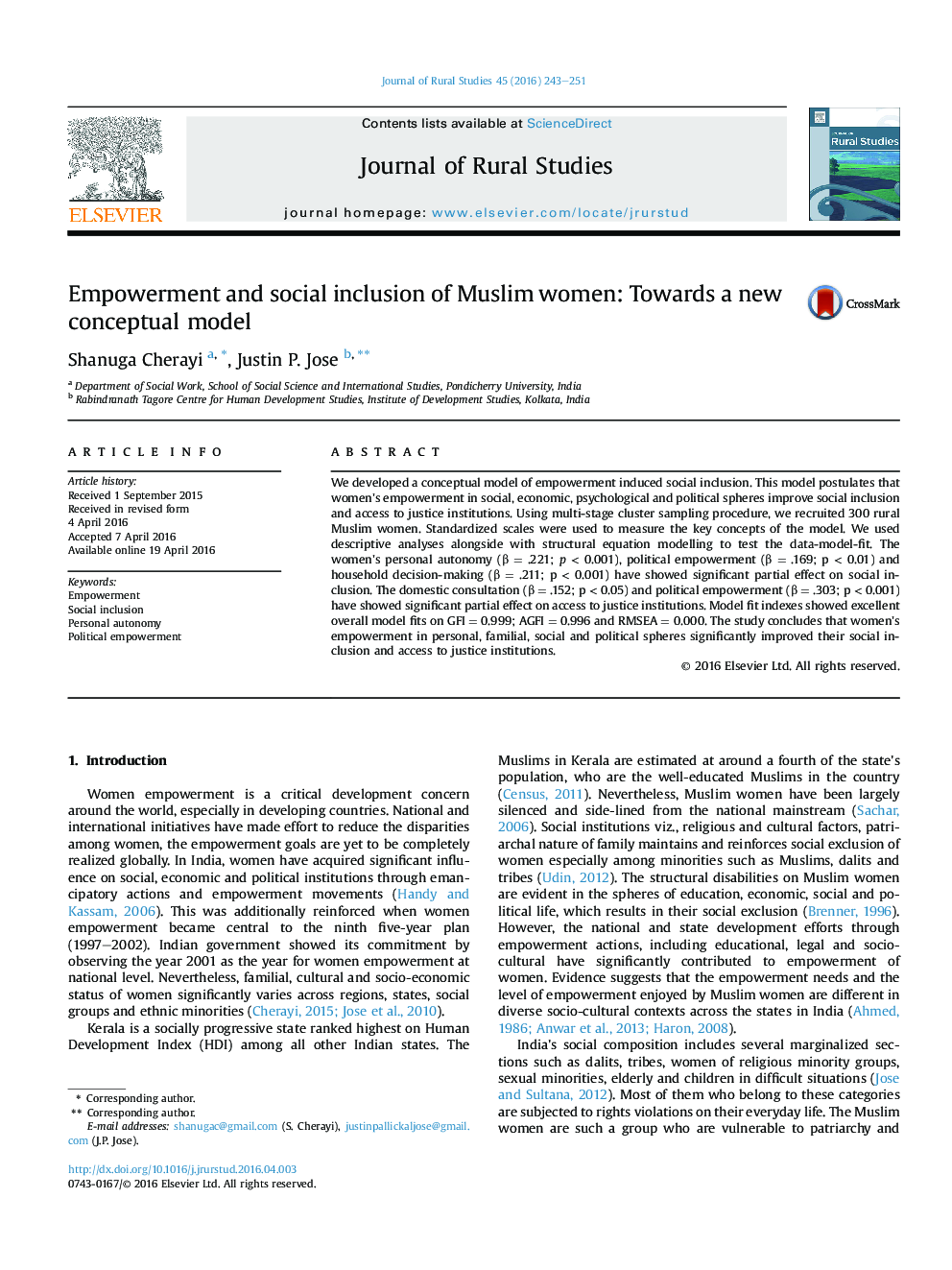| Article ID | Journal | Published Year | Pages | File Type |
|---|---|---|---|---|
| 6545426 | Journal of Rural Studies | 2016 | 9 Pages |
Abstract
We developed a conceptual model of empowerment induced social inclusion. This model postulates that women's empowerment in social, economic, psychological and political spheres improve social inclusion and access to justice institutions. Using multi-stage cluster sampling procedure, we recruited 300 rural Muslim women. Standardized scales were used to measure the key concepts of the model. We used descriptive analyses alongside with structural equation modelling to test the data-model-fit. The women's personal autonomy (β = .221; p < 0.001), political empowerment (β = .169; p < 0.01) and household decision-making (β = .211; p < 0.001) have showed significant partial effect on social inclusion. The domestic consultation (β = .152; p < 0.05) and political empowerment (β = .303; p < 0.001) have showed significant partial effect on access to justice institutions. Model fit indexes showed excellent overall model fits on GFI = 0.999; AGFI = 0.996 and RMSEA = 0.000. The study concludes that women's empowerment in personal, familial, social and political spheres significantly improved their social inclusion and access to justice institutions.
Related Topics
Life Sciences
Agricultural and Biological Sciences
Forestry
Authors
Shanuga Cherayi, Justin P. Jose,
